Product Recall Insurance
Let's face it, product recalls happen–even to the most careful businesses. As an experienced insurance broker, I've seen many companies struggle to financially recover from a product recall. Product recall insurance is designed to soften the blow and safeguard your business from potential ruin.What exactly is product recall insurance?
How does product recall vs product liability?
- Product Liability Insurance Focus:
Protects you from financial losses if your product causes bodily harm or property damage to others. It covers lawsuits, legal fees, and judgments.
- Product Recall Insurance Focus:
Specifically covers the costs associated with physically recalling a product due to a defect, contamination, or other safety concern. Think of it as covering the expenses of getting the product back and mitigating its potential harm.
- Product Liability Insurance Triggers:
A claim of bodily injury or property damage caused by your product.
- Product Recall Insurance Triggers:
The discovery of a defect or issue in your product that could potentially cause harm, even if actual injury/damage hasn't occurred yet.
Example to Illustrate: Let's say you manufacture a baby food product.
- Product Liability Scenario:
A child gets sick after eating your baby food, and the parents sue you for medical expenses and damages. Product liability insurance would help cover those costs.
- Product Recall Scenario:
You discover a contamination issue in a batch of your baby food. Even if no one is known to be ill, you must recall the product. Product recall insurance would cover the costs of notifying consumers, retrieving the product, disposal, and potential lost profits.
Important Points:
Both insurance often Work Together:
While they have distinct purposes, product liability and product recall insurance are frequently used in tandem, especially in cases where a recall is due to potential harm.
Not Always Automatic: Product recall coverage might not be automatically included in a standard product liability policy. It's often an additional coverage or endorsement you'll need to request.
Where do I start with product recall insurance?
- Product-Specific Evaluation
- Complexity: Does your product have many components or a complex manufacturing process? More intricate products have a higher potential for defects.
- Ingredients/Materials: Are any ingredients or raw materials inherently risky (e.g., allergens in food, flammable substances)? Are they sourced from reliable suppliers with their own quality controls?
- Potential Harm: What is the worst-case scenario if your product were to malfunction? Could it cause serious injury, major property damage, or widespread environmental impact?
- Safety Regulations: How strictly regulated is your industry? Are there frequent changes in safety standards that your product needs to meet?
- Company-Specific Factors
- Quality Control: Do you have rigorous testing procedures in place at every stage of production? Is there a system for tracking and tracing individual product batches?
- Recall History: Have you or similar businesses in your industry experienced recalls in the past? Learning from previous incidents is crucial.
- Business Size: Larger companies may have higher exposure simply due to the volume of products they distribute.
- Crisis Management Plan: Is your company prepared to handle a recall efficiently if one occurs? Having a plan can both minimize the risk and appeal to insurers.
- Industry and Market Considerations
- Target Consumers: Are you making products for vulnerable populations (e.g., children, the elderly) where the consequences of a defect would be more severe?
- Geographic Distribution: Are you selling in multiple countries or regions with varying regulations and consumer protection laws?
- Industry Trends: Is there a history of recalls for similar products? Are there emerging safety concerns in your sector that you need to be aware of?
The results of the risk assessment will help determine:
- Need for Insurance: Does the risk profile warrant investment in product recall insurance?
- Coverage Levels: How much coverage do you realistically need, considering the potential costs associated with a recall of varying magnitudes.
- Choice of Insurer: Some insurance companies specialize in higher-risk industries or offer more comprehensive recall policies.
Important Notes:
Collaboration: A knowledgeable insurance broker should work with you to perform this risk assessment. They bring industry awareness and understanding of insurance policy specifics.
Ongoing Process: Risk assessment isn't a one-and-done activity. As your business changes or new information emerges, the risk profile should be re-evaluated and your insurance coverage adjusted accordingly.
What factors influence product recall insurance rates?
- The complexity of your product
- The potential severity of harm it could cause
- Your company's history of recalls or quality control issues
- The size of your business
- Your industry (some industries are inherently riskier, like food or pharmaceuticals)
What Industry benefit from product recall most?
Food & beverages
Children's toys
Pharmaceuticals
Electronics
Automotive parts
Manufacturers of any kind
Do I need product recall insurance selling at Etsy?
FAQ
Why do companies recall products?
How long does a product recall last?
How do I recall a product?
Are there specific product recall insurance requirements in Canada?
What should I look for in a good product recall insurance policy?
Broad recall expenses
Business interruption losses
Brand rehabilitation costs
Potentially even third-party claims

 EN
EN  FR
FR